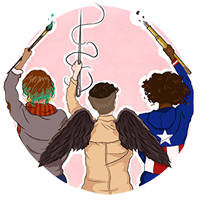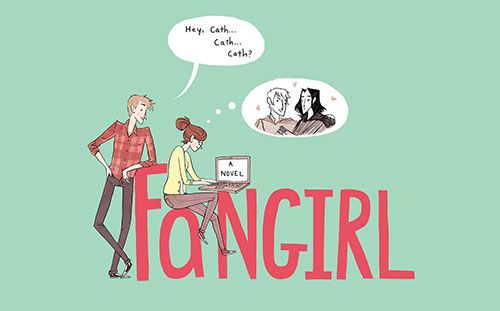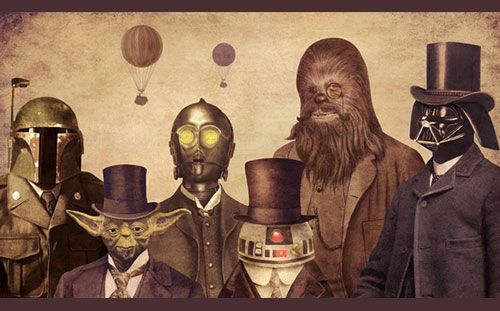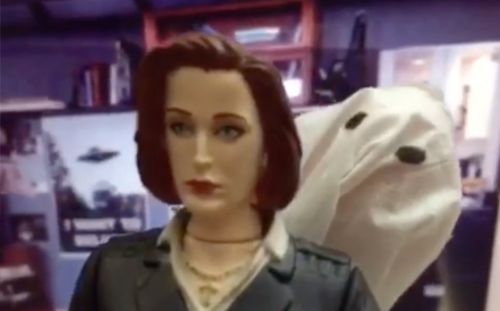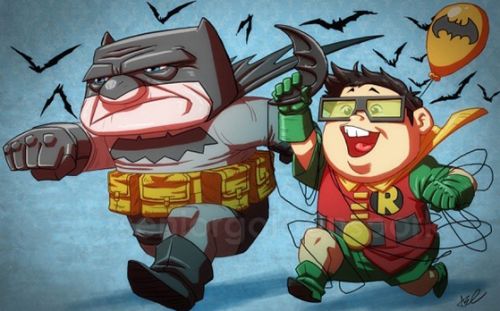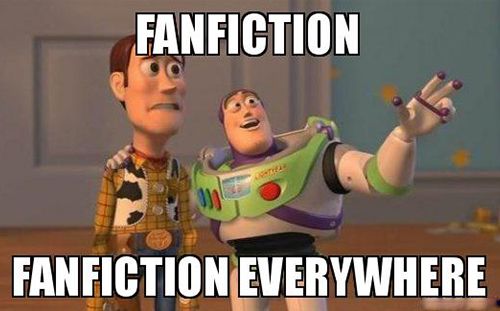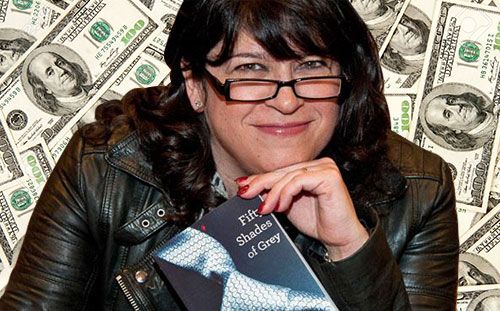Canon schmanon: Who does Harry Potter really belong to, anyway?
Now that you’re done celebrating the fact that James Sirius Potter is officially a Gryffindor (eat it, Slytherins) and Teddy Lupin is actually a Hufflepuff, the fact of the matter is that J.K. Rowling has made it her life mission to never let Harry Potter out of our lives.

Image source: expostninja/tumblr
Regardless, people live and breathe by JKR’s word on what happened to the Boy Who Lived and co. after the final pages of Deathly Hallows. If that’s the case however, where does that leave the mountains on mountains of fanfic? To this day, Harry Potter is still king on fanfiction sites with over 800,000 stories on fanfiction.net, Archive of Our Own, and WattPad.
While J.K. Rowling has supported fanfiction as well as other kinds of fanworks - save for sexually explicit ones - that’s not necessarily true for all authors. Some authors range from outright calling fanfiction, “a mistake,” a way to cause “real, legal trouble,” or a “lazy way out” to refusing to believe that they have the ultimate authority over final interpretations of a work.
I don’t think it’s the author’s place to tell readers what happens to characters outside the text of a novel, because I don’t think the characters (in an extra-textual way, at least) belong to the writer. An author can talk about his/her own reading of the story, or her intentions, but his/her “opinion” on extra-textual matters is irrelevant.
Ultimately, Green is hitting on a deeper issue at hand when we talk about authors, author’s rights, and intellectual property: who do the characters we read about or watch on screen really belong to?
Obviously, if we go by the letter of the law, characters belong to their creators. J.K. Rowling has the cease and desist letters to prove it. Yet, Harry Potter could never be the meteoric, international hit it’s been without its fans. How else would J.K. Rowling sit on her billion dollars worth of royalties without fans that bought books, movies, theme park tickets, and tons of Butterbeer?

Image source: Theme Park Insider
In other words, a big part of the Red Wedding’s impact on pop culture has everything to do with fans’ panic, hilarious reaction videos, and total devastation. George R.R. Martin might have come up with the characters and written an incredible story, but he can’t manufacture the wonder, passion, or fascination fans have with his work.
Another tremendous misconception is that fanfiction is meant to co-opt the worlds, words, and characters of a celebrated author for a profit. Fanfiction has never been about the incredible wealth writers could accrue because they associated Neil Gaiman’s name with their work.
Fanwork was always meant as another form of connection with content by fans for fans: one part a call for community, and the other part a submersion into the world fans love so much beyond the last seconds of the latest episode of Supernatural.
Maybe then, there doesn’t need to be an absolute on who gets the final word in beloved stories. Perhaps, the characters we know live both in the minds of the people who brought them into the world and in the hearts of people who love them. Authority doesn’t need between a clear binary between fans and creators.
So don’t worry. If you wrote fanfiction about what life would be like if Fred Weasley hadn’t died, you’re not alone in your Fred grief.
Today I would just like to say: I'm really sorry about Fred. *Bows head in acceptance of your reasonable ire*
— J.K. Rowling (@jk_rowling) May 2, 2015
We can mourn over Fred Weasley together, even after all these years. Always.
- #Everyday Cosplay: Channel your inner Rufio every ...
- Channel Captain America during your next workout t...
